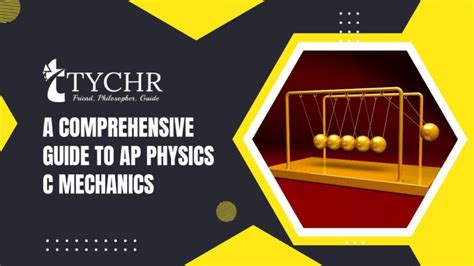Introduction

AP Physics C Mechanics is a demanding college-level physics course that challenges students’ understanding of classical mechanics. The exam, which is administered by the College Board, consists of multiple-choice questions (MCQs) and free-response questions (FRQs). This article provides a comprehensive guide to help you prepare effectively for the AP Physics C Mechanics MCQ.
Importance of MCQ Preparation
MCQs constitute a significant portion of the AP Physics C Mechanics exam, accounting for 50% of the total score. They assess your ability to:
- Comprehend fundamental concepts in mechanics
- Apply these concepts to solve problems
- Recognize patterns and relationships in physical systems
Mastering MCQs is crucial for maximizing your score and securing a high grade on the exam.
Effective Preparation Strategies
1. Review the Course Material:
Thoroughly review your class notes, textbooks, and online resources to ensure you have a solid understanding of all the concepts covered in the course.
2. Practice with Official Practice Tests:
The College Board provides official practice tests that simulate the actual exam. These tests contain high-quality MCQs that are representative of the exam’s difficulty and scope.
3. Use Online Resources:
Numerous online resources offer practice MCQs, simulations, and video tutorials. These resources can supplement your classroom learning and provide additional practice opportunities.
4. Form Study Groups:
Collaborate with classmates or friends who are also preparing for the exam. Discussing concepts, solving problems together, and quizzing each other can enhance your understanding and retention.
Common MCQ Formats
1. Conceptual Questions:
These questions test your understanding of fundamental concepts, definitions, and physical laws. They may ask you to:
- Identify the correct equation for a given scenario
- Describe the physical principles involved in a process
- Explain the relationship between variables
2. Numerical Questions:
These questions require you to apply concepts and equations to solve problems. They may present data, graphs, or diagrams that you need to analyze and use to calculate unknown variables.
3. Application Questions:
These questions ask you to apply your knowledge to real-world situations and make predictions or draw conclusions based on physical principles. They may involve solving problems related to:
- Trajectory of objects in projectile motion
- Collision dynamics
- Rotational motion
Tips for Answering MCQs
- Read the question carefully and identify the key information.
- Eliminate distractors by crossing out obviously incorrect answer choices.
- Consider the units of the answer choices to ensure logical consistency.
- Use dimensional analysis to check if your answer has the correct units.
- If you cannot eliminate any answer choices, make an educated guess based on your best understanding of the concept.
Frequently Asked Questions (FAQs)
1. How many MCQs are there on the AP Physics C Mechanics exam?
There are 50 MCQs on the exam, each worth 1 point.
2. What is the time limit for the MCQ section?
You have 45 minutes to complete the MCQ section.
3. Can I use a calculator on the exam?
Yes, you are allowed to use a scientific or graphing calculator on the exam.
4. How can I improve my MCQ score?
Consistent practice, thorough content review, and utilization of effective study strategies can significantly improve your MCQ score.
5. What is a good MCQ score?
A score of 40 out of 50 (80%) is generally considered good and can help you achieve a high overall score on the exam.
6. How many times should I practice MCQs?
Aim to practice at least 100 MCQs per concept covered in the course.
7. Should I guess on MCQ questions I don’t know?
Yes, you should make an educated guess even if you are unsure of the answer. There is no penalty for guessing on MCQs.
Applications of AP Physics C Mechanics
Concepts and principles learned in AP Physics C Mechanics have wide-ranging applications in numerous fields, such as:
- Engineering: Design of bridges, buildings, and other structures
- Astrophysics: Modeling the motion of celestial objects
- Robotics: Programming and control of robotic systems
- Aerospace engineering: Analyzing and designing aircraft and spacecraft
- Biomedical engineering: Developing medical devices and diagnostic tools
Conclusion
Mastering AP Physics C Mechanics MCQs is essential for success on the exam and for developing a strong foundation in classical mechanics. By following the strategies outlined in this article, practicing consistently, and utilizing available resources, you can enhance your understanding of the subject and achieve your desired score. Remember that dedication, hard work, and a positive attitude are instrumental in achieving academic excellence.
